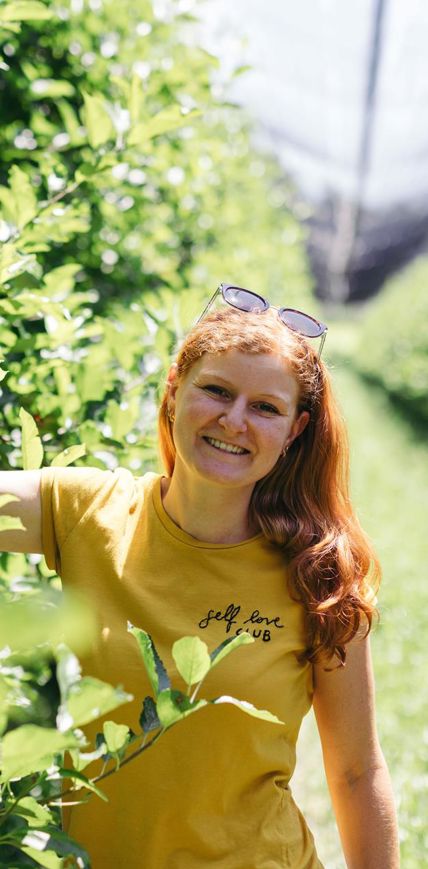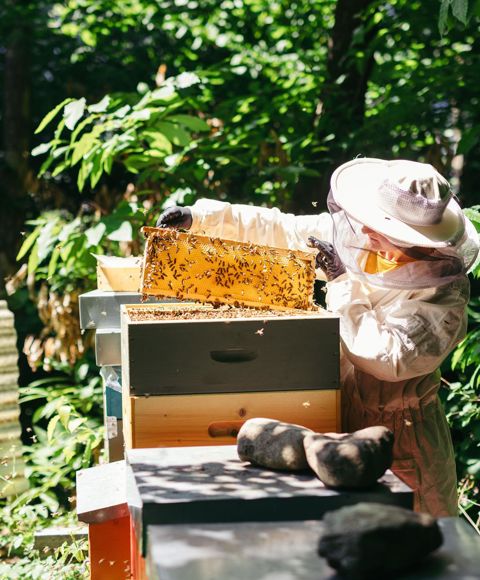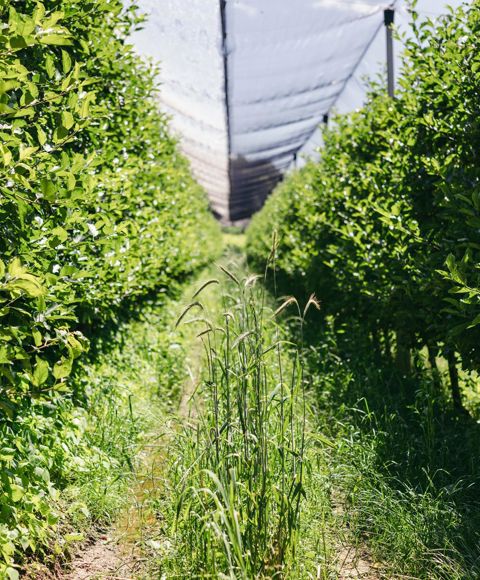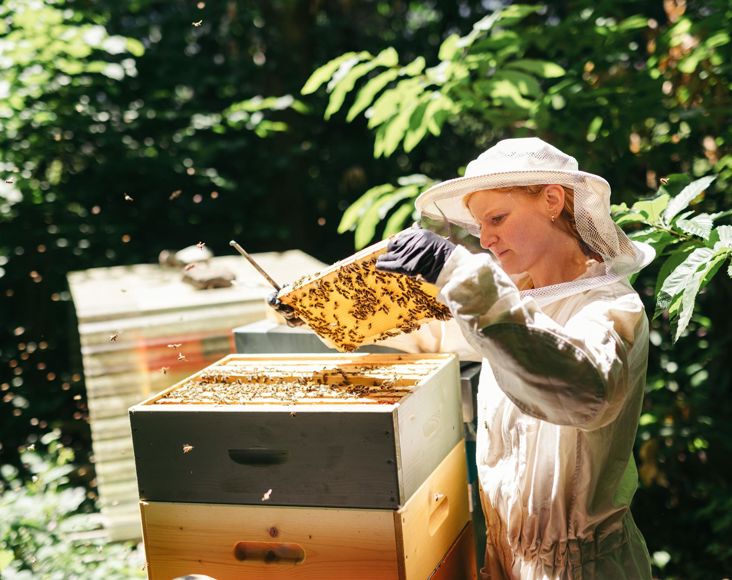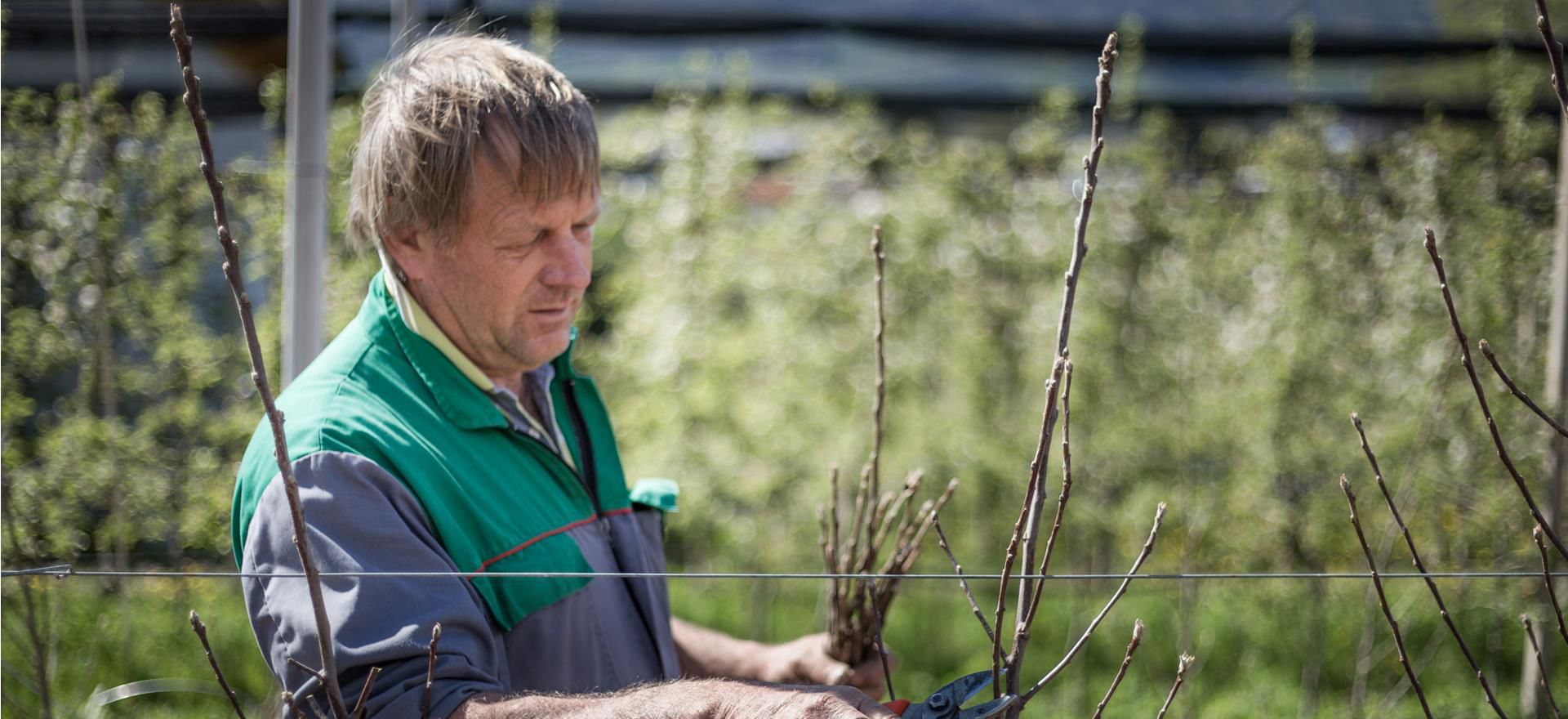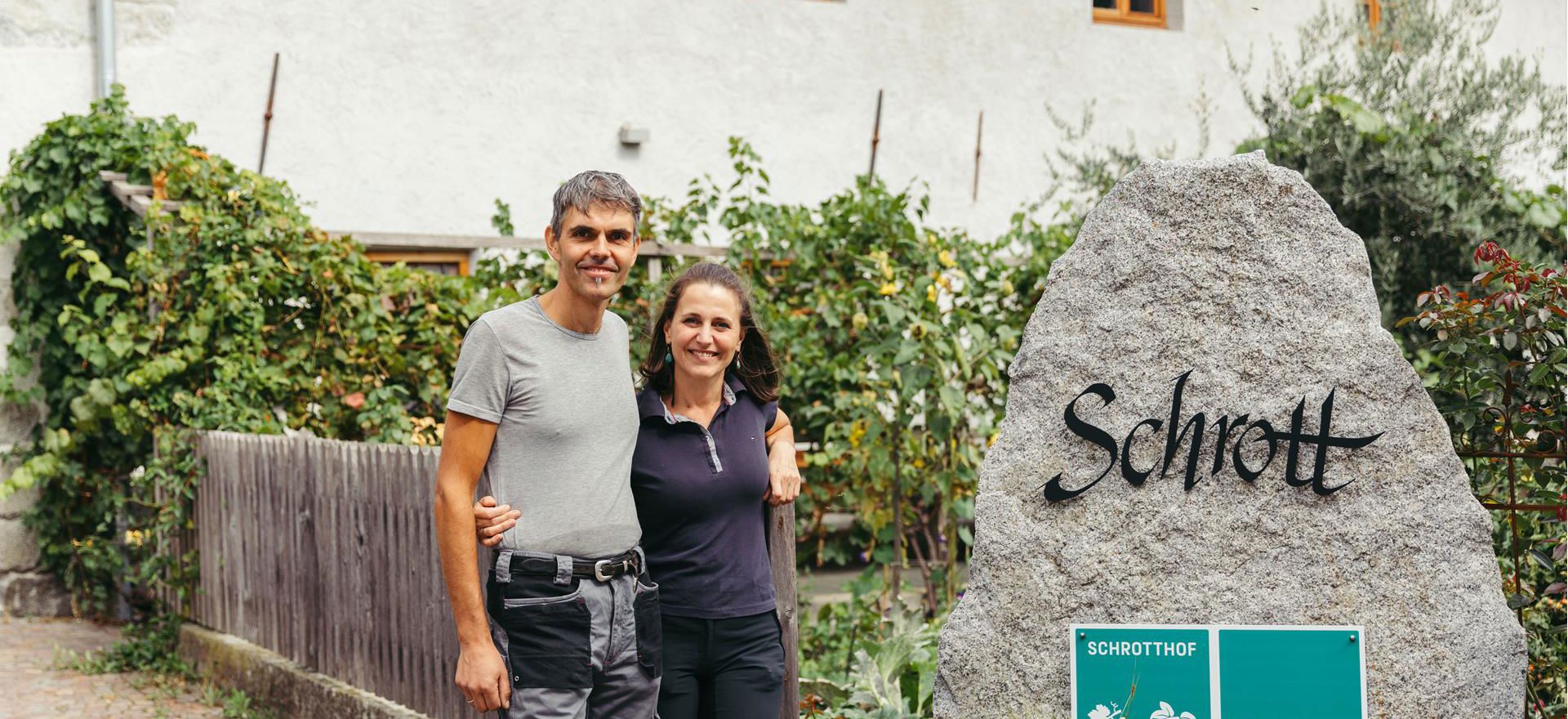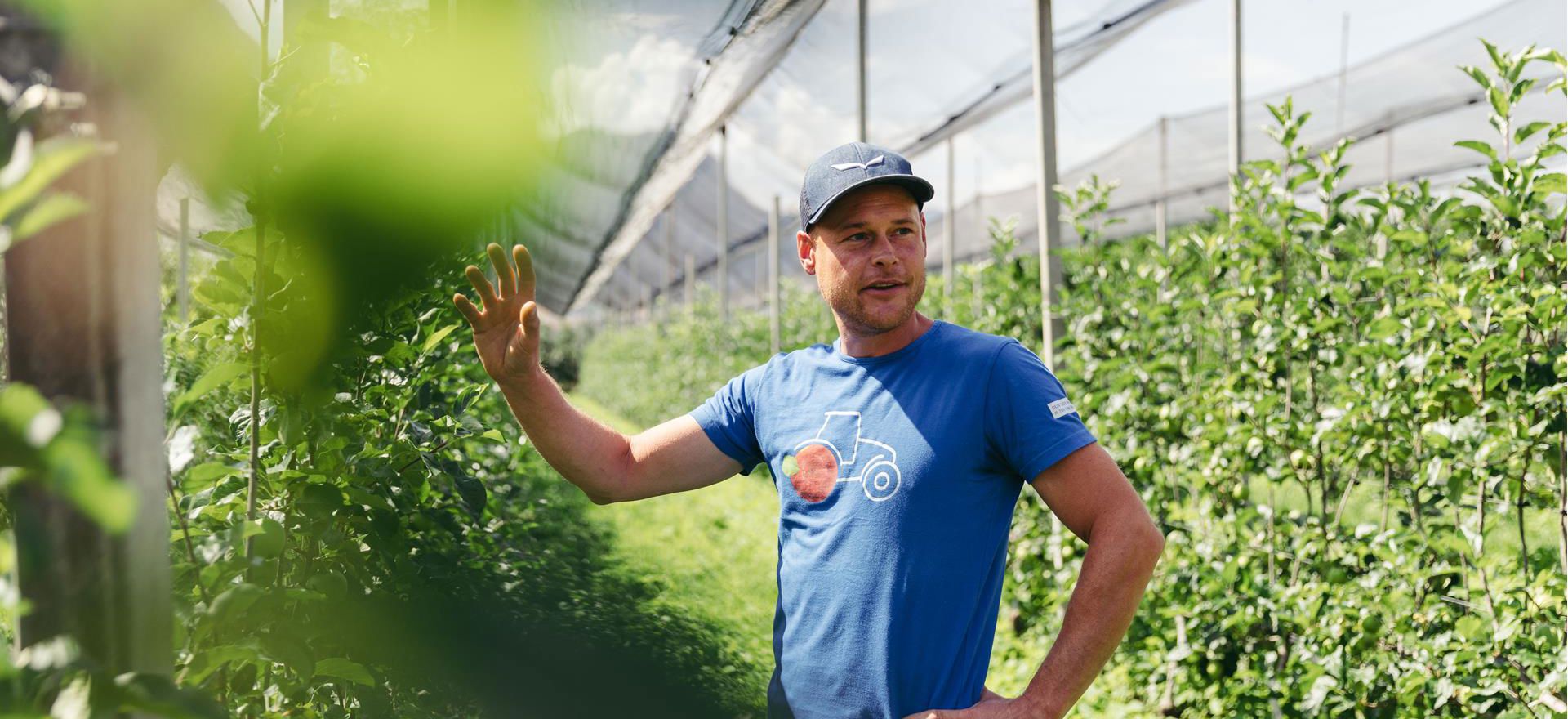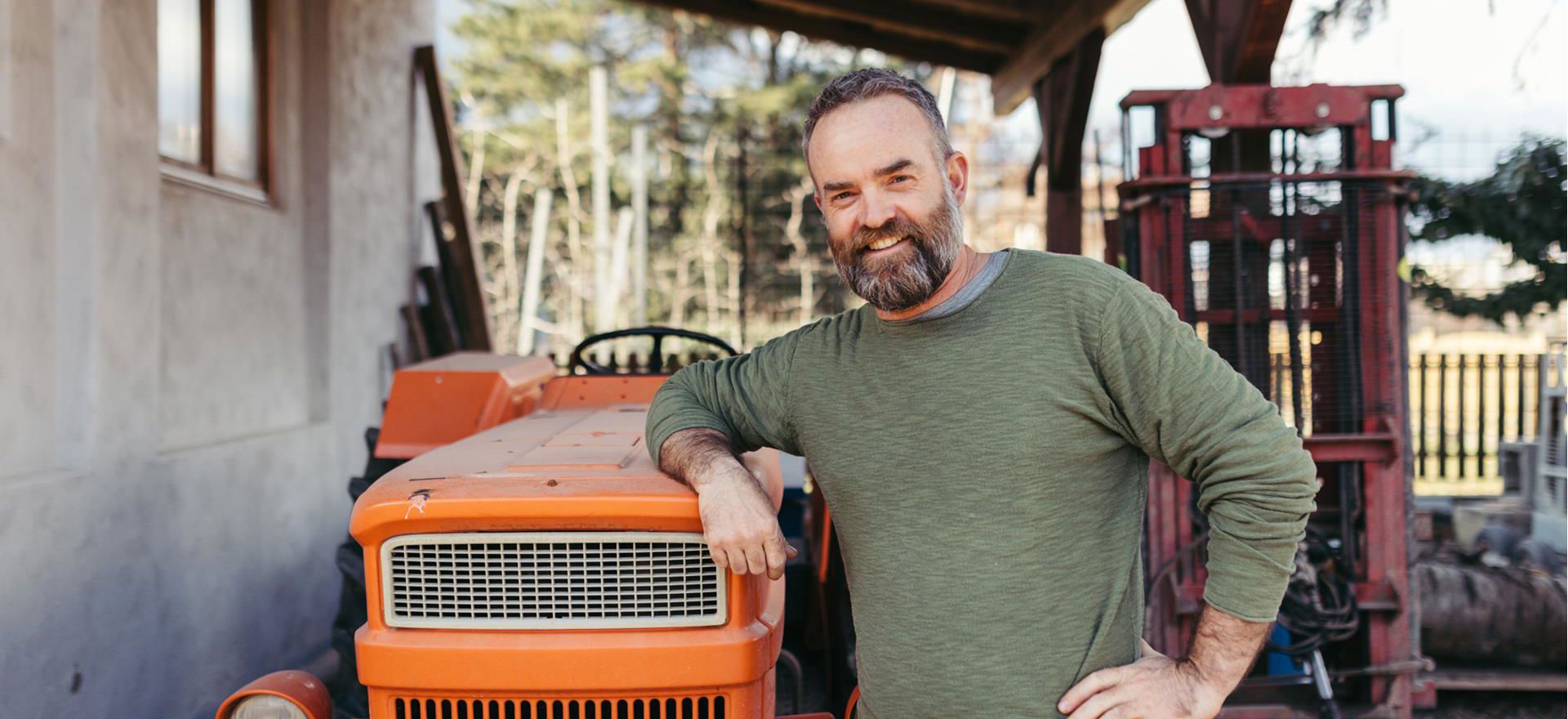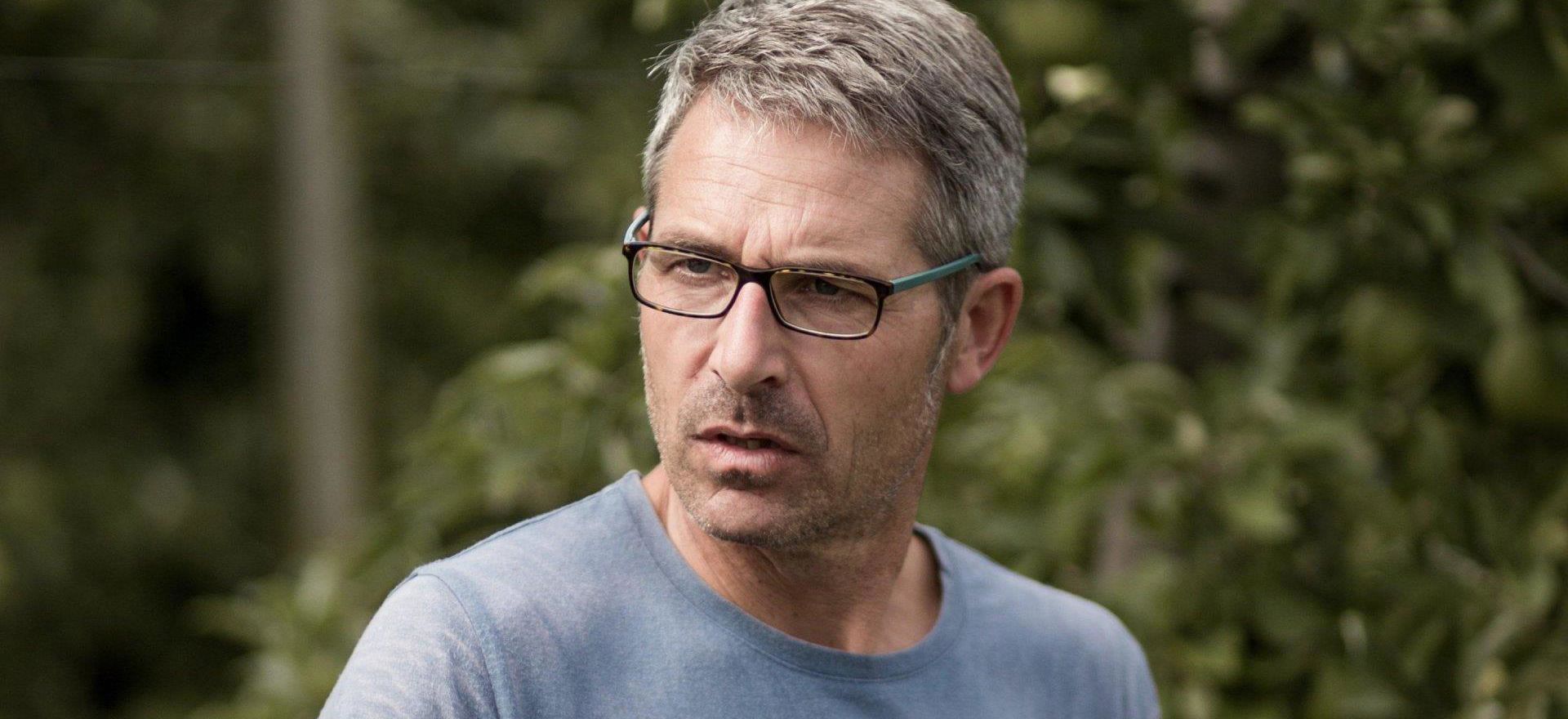The middle of June, somewhere in Eppan, somewhere in an apple orchard.
Blue sky above and light green grass below. To the left and right, spring green leaves on lushly growing trees reach happily towards the sun. Every so often a bee, cheerful, light-hearted and carefree, flies between them. It is an idyllic scene, a day straight from a picture book. Rich green, soft blue and radiant sunshine.
And someone else is glowing in the middle of it all. With a yellow top, a happy grin and sun-kissed hair.
Julia invited us to come here, to Tutzerhof Farm. The name actually comes from Julia’s grandmother. When her father had the holding declared a “closed farm” back in the day, he gave it his mother’s last name. Granny still likes to tell about how she used to cultivate fruit and make wine. About the gigantic, old Granny Smith apple trees and pear trees they used to have. Julia’s father took over the farm, exchanged the pears for apples and switched from conventional cultivation to the biodynamic method. A decision born of conviction. Today, eight old pear trees are still standing on a piece of meadow that the family bought a few years ago. Kaiser and Williams, both excellent varieties.
Julia’s father still helps where he can, but lately he has started to keep out of the day-to-day business and let the younger generation do their thing. Nowadays he spends more time in the mountains: as a guide and naturalist, he has a lot to tell his tour groups. The younger generation is now Julia and her brother Daniel. Both are just starting out: they gained possession of the farm only recently. But they are only beginners on paper, as they have always worked on the farm and provided assistance where it was needed. They watched what their father was doing, asked questions, learned and absorbed knowledge.
And someone else is glowing in the middle of it all. With a yellow top, a happy grin and sun-kissed hair.
Julia invited us to come here, to Tutzerhof Farm. The name actually comes from Julia’s grandmother. When her father had the holding declared a “closed farm” back in the day, he gave it his mother’s last name. Granny still likes to tell about how she used to cultivate fruit and make wine. About the gigantic, old Granny Smith apple trees and pear trees they used to have. Julia’s father took over the farm, exchanged the pears for apples and switched from conventional cultivation to the biodynamic method. A decision born of conviction. Today, eight old pear trees are still standing on a piece of meadow that the family bought a few years ago. Kaiser and Williams, both excellent varieties.
Julia’s father still helps where he can, but lately he has started to keep out of the day-to-day business and let the younger generation do their thing. Nowadays he spends more time in the mountains: as a guide and naturalist, he has a lot to tell his tour groups. The younger generation is now Julia and her brother Daniel. Both are just starting out: they gained possession of the farm only recently. But they are only beginners on paper, as they have always worked on the farm and provided assistance where it was needed. They watched what their father was doing, asked questions, learned and absorbed knowledge.


